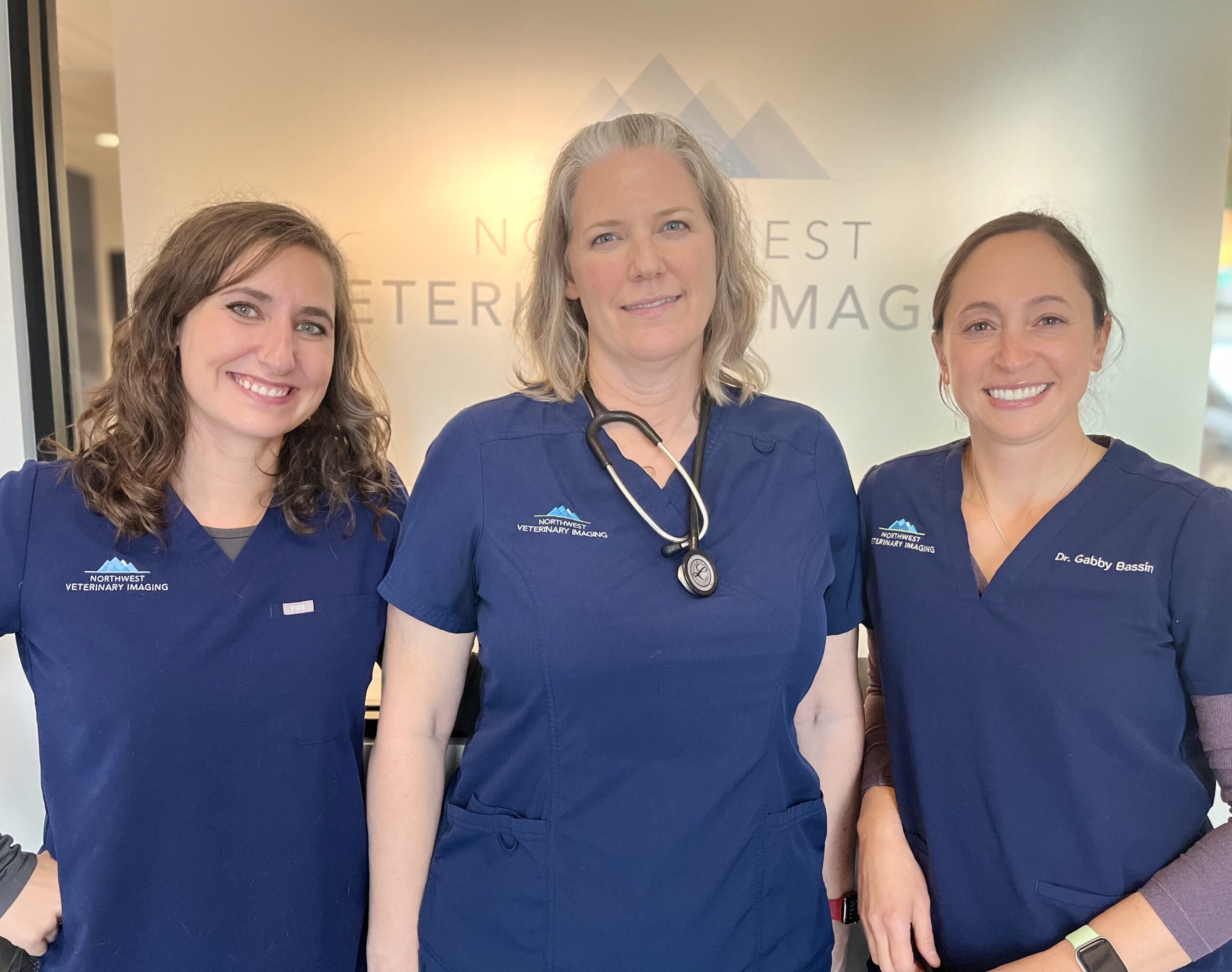What is a DVM Sonographer?
Great question! We’re so glad you asked. When we humans need an ultrasound, a trained sonographer (who is not a doctor) performs the imaging, which is then interpreted by an MD radiologist and reported to the attending physician. Historically, veterinary radiologists have been the only ones who perform animal ultrasounds, but veterinary radiologists are in very short supply these days. The American College of Veterinary Radiology provides no guidelines for the use of trained sonographers in the way that human radiology does, so in order to meet the local demand for high quality small animal ultrasound services, we found our own solution. We decided to train veterinarians (DVMs) who already had many years of experience in clinical practice to perform ultrasound exams and make preliminary assessments of the imaging findings in light of the medical history. We currently have three DVM sonographers in our practice, all of whom have extensive clinical experience working in small animal general practice and emergency/critical care settings prior to working at NWVI. They have all completed extensive on-site as well as formal off-site ultrasound training prior to performing ultrasound exams independently. They are also experienced in obtaining ultrasound guided fine needle aspirate and centesis samples, as well as TruCut liver biopsies. For each outpatient ultrasound appointment, our DVM sonographers: (1) review the patient’s medical history, (2) perform a complete physical exam, (3) perform the ultrasound exam and obtain many still and moving images, (4) obtain aspirate/centesis samples when indicated and safe, (5) preliminarily interpret the imaging findings in light of the clinical history, (6) discuss preliminary findings and recommendations with patients’ owners, and (7) report aspirate/biopsy results to owners and referring DVMs when applicable. Our radiologist then interprets the images and writes an official ultrasound report which is emailed to the referring veterinarian within 24 hours. It’s a cohesive and comprehensive process. Our clients and referring veterinarians are consistently appreciative of the quick and clinically relevant results!
